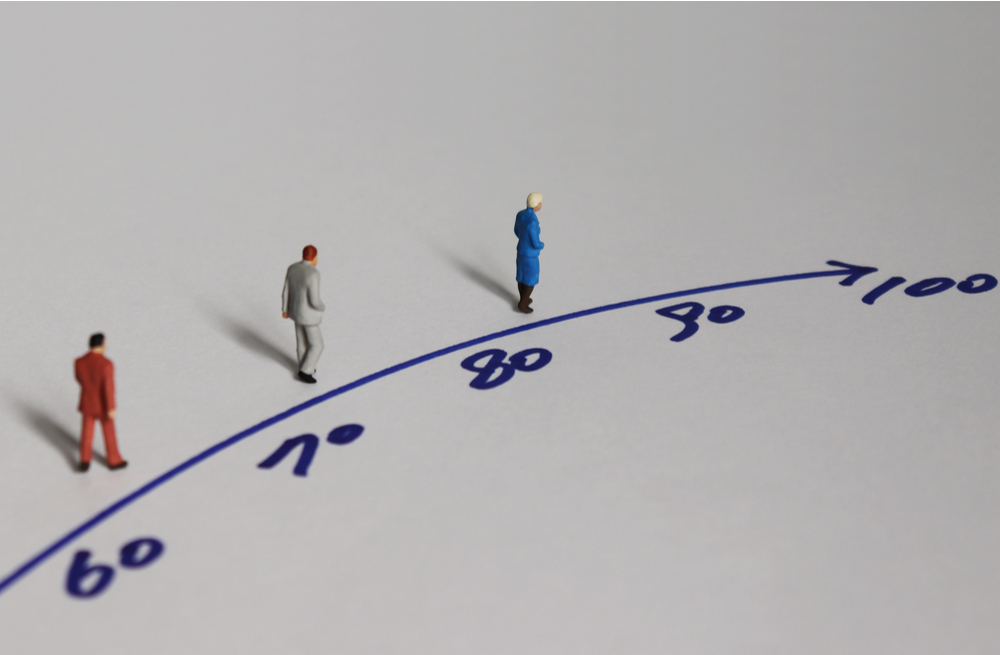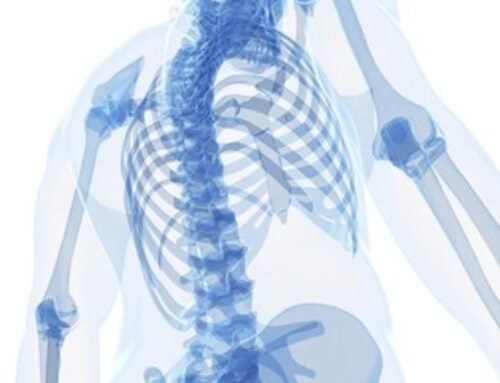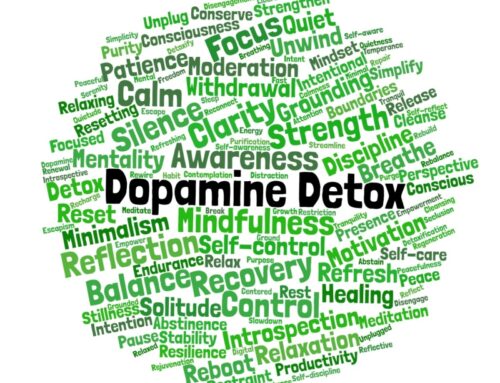The past few weeks have us facing the reality that none of us know how long we have on this Earth. We all would like to think that we will live to a ripe old age and pass away under our own terms gracefully. The fact of the matter is, that many will not see that come to fruition in our lifetime. But what if there was a way to predict how long you are going to live? Better yet, what if you could do something to influence that?
There is a doctor in Brazil that has developed a test to help determine your chances of surviving the next 5 years. The Sitting Rising Test (SRT) was developed by Dr. Claudio Gil Araujo, MD, PhD, a specialist in exercise and sports medicine at Clínica de Medicina de Exercício – Clinimex, in Rio de Janeiro Brazil. He has proven the SRT can predict your risk of dying in the next five years by testing your non-cardiac fitness.
 We have consumed a lot of time and money in America figuring out how healthy you are, and how long you might live by studying the cardiovascular system. A cardiac stress test is often considered the gold-standard test of the cardiovascular system, but can be difficult and expensive to administer. However, this test, as well as similar tests, has done little to accurately predict your projected lifespan.
We have consumed a lot of time and money in America figuring out how healthy you are, and how long you might live by studying the cardiovascular system. A cardiac stress test is often considered the gold-standard test of the cardiovascular system, but can be difficult and expensive to administer. However, this test, as well as similar tests, has done little to accurately predict your projected lifespan.
What if you could predict your longevity quickly, easily, and from the comfort of your home? Scientific studies over the past fifteen years have proven if you have trouble getting down and back off the floor, it’s nothing to laugh at. Dr. Claudio Gil Araujo invented the SRT to easily measure non-aerobic physical fitness and found it to be an excellent predictor of your overall health.
Dr. Araujo not only studied a patient’s ability to bike or run on a treadmill, he also assessed the individual’s ability to tie their own shoes. He realized that aerobic fitness, strength, flexibility, and balance are all equally important.
The Sitting Rising Test quantifies the patient’s ability to get down and back up from a sitting position with minimal support. It can be used in all age groups, and results are based on a scale of one to ten. Score three or less and your risk of dying is five times greater over the next five years.
It may look and sound easy, but here’s how it’s done:
Cross your feet, and go into a seated position. That’s five points. Coming back up is another 5. But you can lose points quickly. You lose a point for each hand, arm or knee you need for support.

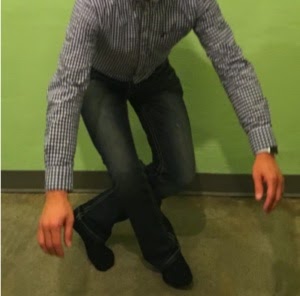
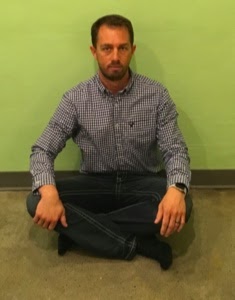
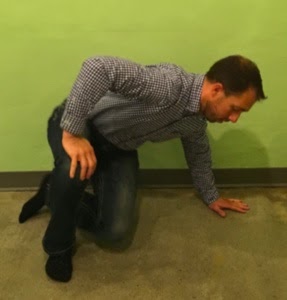
This test is not specific for any particular ailment but it does seem to be correlative to a 21% decrease in mortality from all causes of death per point that you score. This makes sense as the more active we are the better we can accommodate stressors and health issues down the road. Dr. Araujo’s work has demonstrated that if you’re over fifty and score a perfect ten, you should be proud, because not many people in that age group can accomplish a ten.hen you lose your balance at any time, either on the way down or coming back up. Total them all for your final score. I suggest you take your shoes off and wear comfortable clothes.
What can you do if you don’t score well? Try improving your mobility and balance with these steps.
- Get out of your chair: Sitting creates hip stiffness. Switch to a stand-up desk or set 30-minute reminders to stand and move around.
- Stretch more: Stretch or foam roll the leg muscles, particularly the hip flexors, quads, and groin muscles. I would advise you to skip stretching the hamstrings and to foam roll them instead as this will help to prevent a back injury.
- Squat more: A squat is perfect exercise to improve hip mobility. It requires no equipment and can be done anywhere. Try 10-15 squats, 2-3X per day. If you find performing a squat difficult hang onto a door frame while you squat.
- Try a balance exercise: Balance is a skill that can be perfected with practice. Try simply standing on one foot while you are in the shower, doing the dishes, or on the phone. If you can do that well, increase the difficulty by adding some movement. Tr
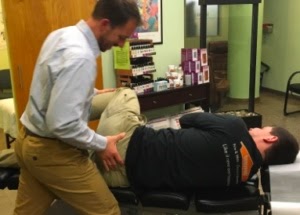 y bouncing a ball or performing a cup touch. Check out one of my previous blog posts on how better balancing improves your brain power.
y bouncing a ball or performing a cup touch. Check out one of my previous blog posts on how better balancing improves your brain power. - See a chiropractor who specializes in Active Release Technique: ART is best-known as a soft-tissue treatment for stiff and adhered muscles. ART has been shown to improve range of motion in the hips and knees and can be an important tool to reclaim your mobility and balance.
More tips to improve longevity:
- Intermittent fasting has been shown to improve longevity by reducing free radical damage. Fasting for 12-16 hours each day is a great goal for both reducing free radical damage and for optimizing insulin production.
- Drink to a long life. Water, green tea, coffee, and wine from muscadine grapes can all enhance your body’s breakdown of toxins. Drink the tea, coffee, and wine in moderation to reduce any overloading of the system that excess of these beverages can create.
- Snacks can improve longevity. Eating nuts with high amounts of omega-3 fats (pecans, walnuts and macadamia nuts) provide the fat that our nervous system needs to stay healthy. Likewise, dark berries (blackberries, blueberries and raspberries) have large amounts of antioxidants. Antioxidants and omega-3 fats both help to reduce inflammation which has been linked to a vast majority of disease processes.
- Fats enhance life! Fats that are high in omega-3 fats are also very useful in reducing inflammatory processes. Coconut oil, avocados and salmon are some of the best.
These foods and more are an important piece of the longevity puzzle. None of us have any guarantee about tomorrow, but we can all do a bit better in giving our bodies the best chance to grow old gracefully. Fighting inflammation, improving your balance, and increasing mobility is not an easy task, but it is worthwhile. The quality of life you experience when you can move with ease and fight off disease makes every health improvement effort worthwhile. Check out our videos and other articles that can show you how to improve your balance, mobility, and diet. Remember, at [Core] it is our goal to see you become healthier than you have ever been. Stay healthy.

Daryl C. Rich, D.C., C.S.C.S.

